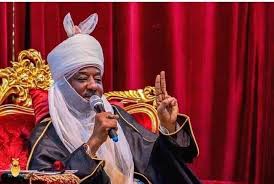The city of Kano has remained peaceful following the Federal High Court’s judgment nullifying the reinstatement of Emir Muhammad Sanusi II. Despite the legal development, residents went about their daily activities without any disruptions or unrest.

The police and security personnel were deployed to strategic locations, including the main palace, to maintain law and order. However, their presence did not deter residents from carrying out their daily routines.
Supporters of the deposed Emir Aminu Ado Bayero were seen exchanging greetings at the Nasarawa mini palace, while others expressed mixed feelings about the court judgment. Some residents welcomed the decision, while others remained indifferent, prioritizing peace and stability in the state.
The Kano Police Command reminded residents that the ban on processions, protests, and unlawful gatherings is still in force, warning that any violation would be met with arrest and prosecution.
As the city awaits further legal developments, residents continue to yearn for peace and stability, especially during these challenging times.
In a related context, the Kano Emirate has a rich historical significance, dating back to ancient times. The emirate has evolved over centuries, reflecting a blend of historical traditions and modern influences.
The appointment and succession of emirs in Kano have been shaped by historical traditions, Islamic scholarship, and cultural heritage. The kingmakers play a crucial role in recommending a candidate for approval by the Sokoto Caliphate.
Despite recent changes, the emirate system continues to adapt to changing times while preserving its heritage. As Kano moves forward, its residents remain committed to peace, stability, and the preservation of their cultural legacy.




